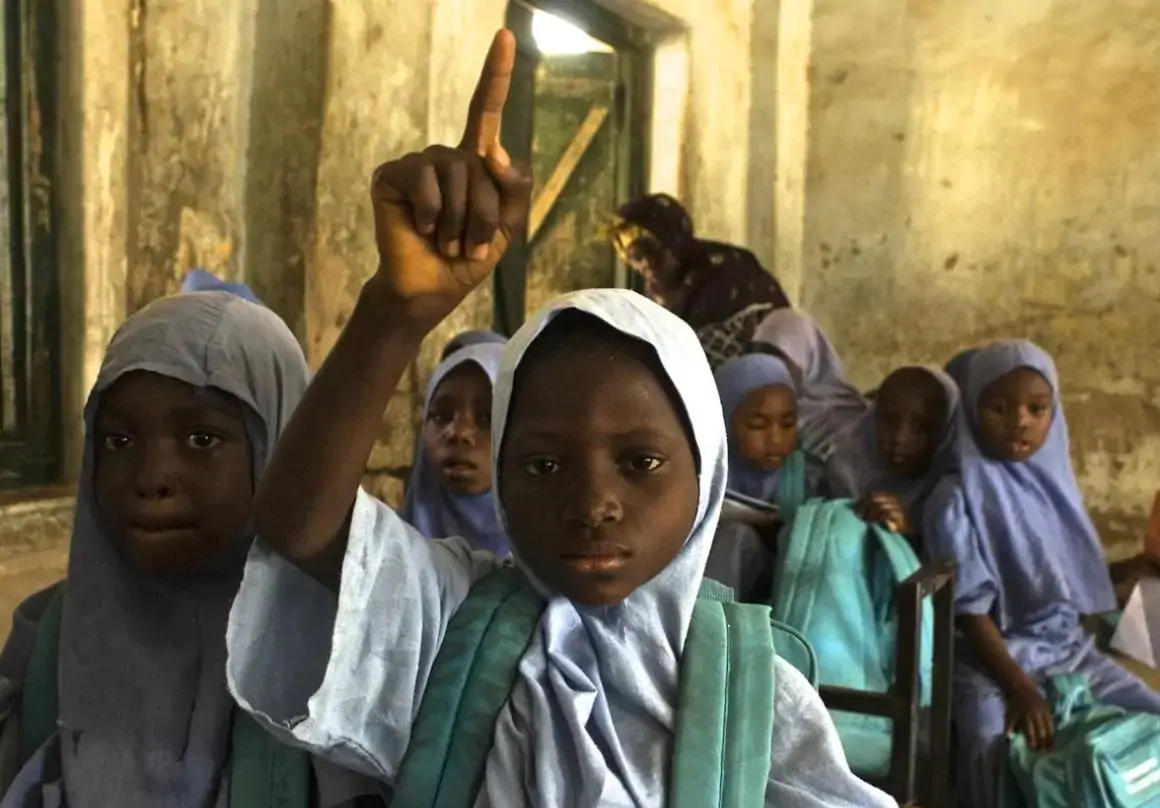On October 11th, once again we celebrated the International Day of the Girl-Child, a day dedicated to recognising the dreams, rights, and limitless potential of girls across the globe. This year’s theme, “Girls’ Vision of the Future,” resonated with me not only as a public health professional but also as a person who, over the past five years, has developed an insatiable desire to educate, and empower less privileged girls in northern Nigeria. Although I have spent most of my professional life in the health sector, specifically public health, I’ve come to realise that perhaps the greatest contribution I can make to my community is to uplift girls.
As I reflect on this day, my mind goes back to the endless possibilities residing in every Nigerian girl. Despite the many challenges, these girls remain optimistic and strong, envisioning how they can be contributing leaders, innovators, and transformers of societies in the years to come. I have seen firsthand how the right kind of support, resources, and opportunities unlock this potential and how one girl’s empowerment can create multiplier effects benefiting not only families and communities but also whole economies.
Over the past years, my work has been channelled around the enhancement of health systems, advocating for better healthcare services, and availing of required needs to reach the most vulnerable populations. I remain deeply passionate about public health, but as time passed, a parallel cause spoke out loudly to me; uplifting the girl-child. It was an inescapable feel-good factor that education and empowerment were equally imperative to a girl’s well-being as her physical health. A healthy girl is important, but a healthy, educated, and empowered girl brings in the power of changing the world around her.
I have been privileged to be introduced to young girls from less privileged backgrounds in Nigeria over the past five years and have equally had the opportunity to work with them. The resilience in their character, even in adverse conditions, gave me the motivation. Girls like Fatima who, though grew up in a conflict area, aspires to be a doctor to give back to her community, or Maryam, an aspiring pilot from GGSS Rano Dawaki in Kano. These girls instilled in me hope for the future of Nigeria and also made me realise that the best possible contribution I can make to the community is through uplifting them.
- Why we demolished ex-deputy speaker’s property — Lagos LG chair
- IMF slashes borrowing costs by 36%, saves countries $1.2 bn yearly
While Nigerian girls are full of vision and potential, they are also disproportionately affected by global challenges like climate change, poverty, and conflict. In rural areas, especially, access to education is often limited by these crises, leaving many girls unable to pursue their dreams. When girls are denied the opportunity to learn, their futures and, by extension, the future of our country, are put at risk.
Yet, the resilience of Nigerian girls always manages to seep through. In each community I visit, I see girls who, despite everything being stacked against them, hope for a better tomorrow and aspire to be doctors, lawyers, engineers, and entrepreneurs. These girls dream well, knowing their pathway to these opportunities lies in education. It’s this indomitable spirit that fuels my commitment to their empowerment and desire to make sure they have the wherewithal to bring their dreams to realisation.
Education has always formed the framework on which I have mounted efforts to empower the girl-child. Essentially, education is the greatest equaliser—it cuts through the vicious cycle of poverty, opens new avenues of opportunities, and enables girls to contribute meaningfully to mainstream society. However, a majority of Nigerian girls are still denied their rights to quality education, especially those in underprivileged or conflict-scarred areas.
In these areas, girls face a number of systemic obstacles extending from a lack of appropriate school facilities all the way to a shortage of female instructors and general overall resources. These are, in fact, tractable challenges, but they certainly require focused interventions and investments. This, together with the provision of scholarships, safe learning environments, and access to mentors and role models, should enable us not only to narrow the gap in education but also open an avenue towards a generation of empowered young women.
With the world having gone digital, besides formal education, digital literacy is an indispensable skill that every girl-child of this modern generation needs to acquire. The girls of Nigeria are increasingly cognisant of the accruable benefits that come with mastering technology and innovation, and many of them are eager to learn such skills as coding and being entrepreneurial for the purpose of competing in the global economy.
In the last couple of years, digital education programmes have changed the lives of numerous young girls. Beyond providing them with productivity skills required in the digital age, it has also empowered them to challenge societal norms and take charge of their futures. However, there’s a need to expand these programmes, especially in rural areas where access to technology remains limited or non-existent. Doing so can help in bridging the digital divide and ensure that every girl, irrespective of her background, gets an opportunity for leadership and innovation in today’s world.
As someone who has invested her entire career in the cause of better public health systems, one thing is for sure: a holistic approach is key to empowering girls; their health, education, and leadership development must go hand in hand. Ensuring that girls have access to healthcare services, including mental health support and reproductive health education, is crucial to their overall well-being. At the same time, investing in girls’ education and creating leadership opportunities will allow them to grow into confident, self-sufficient women who can contribute to the betterment of our society.
Of the many important lessons I have learnt in my journey towards empowering the girl-child, one thing stands very central: no girl will be able to achieve her vision in isolation. She needs allies—parents, teachers, community leaders, and policymakers—who will listen to her needs, support her ambitions, and invest in her futures. It is therefore our collective responsibility to ensure girls live in an enabling environment where they feel valued, safe, and empowered to pursue their dreams.
As I look back on this year’s International Day of the Girl-Child, I am struck by a sense of renewed purpose. The theme “Girls’ Vision for the Future” is not only a call to action but a reminder that we have a responsibility to invest in the next generation of leaders. Girls like Fatima and Maryam are already taking bold steps towards becoming whoever they want to be, but they need our support if they are to realise their full potential.
May we not fail them!
Dr Halimah Sanda wrote from Abuja

 Join Daily Trust WhatsApp Community For Quick Access To News and Happenings Around You.
Join Daily Trust WhatsApp Community For Quick Access To News and Happenings Around You.


